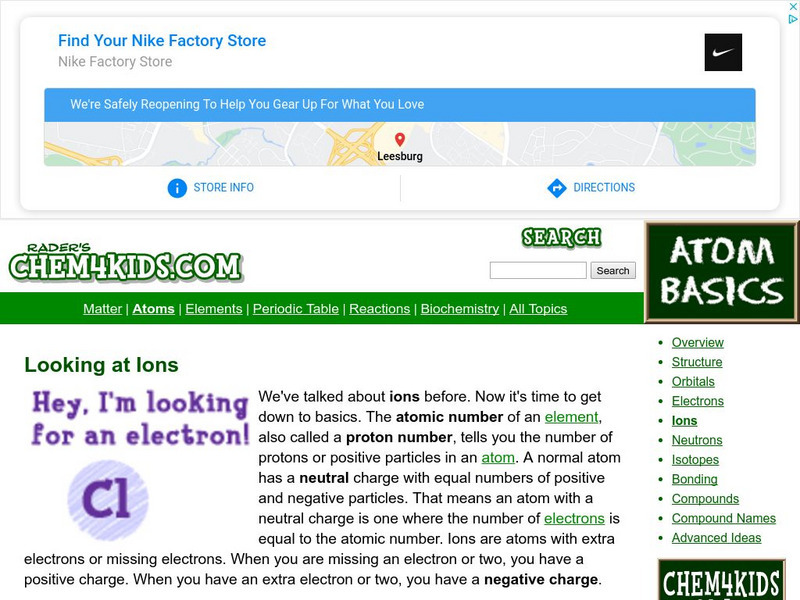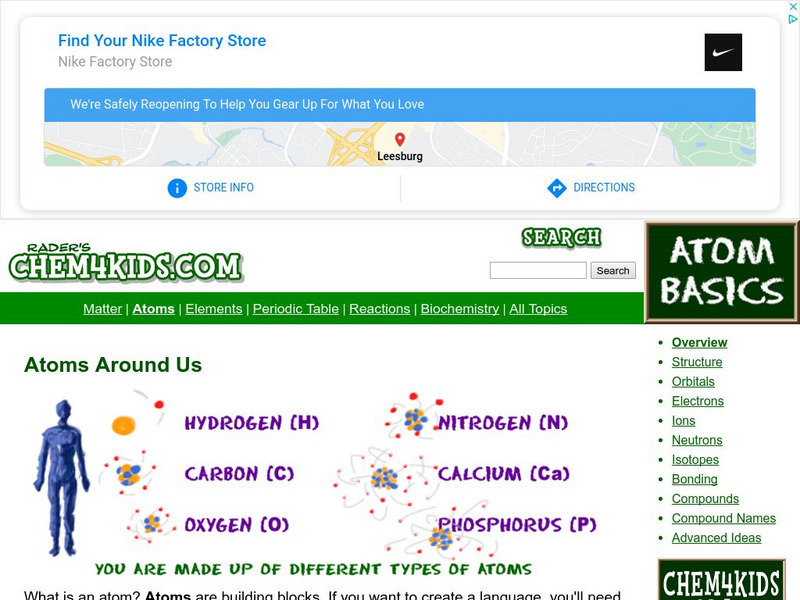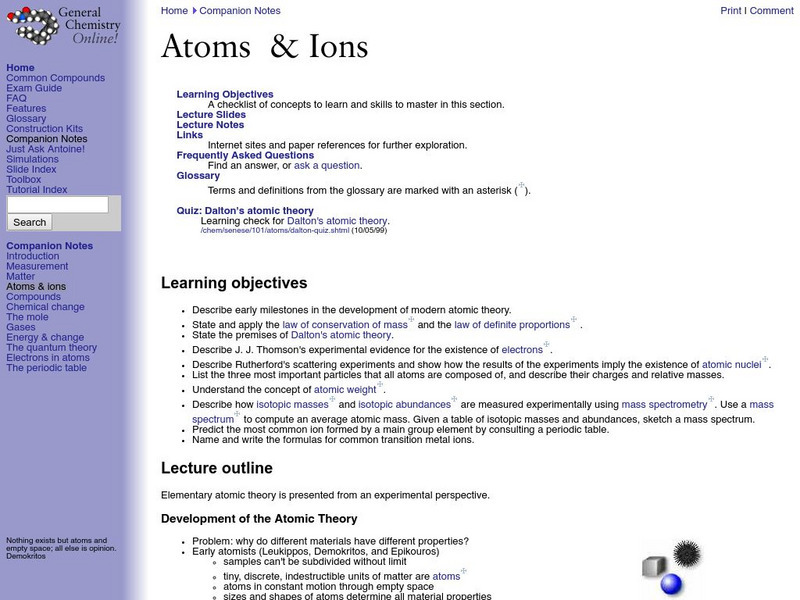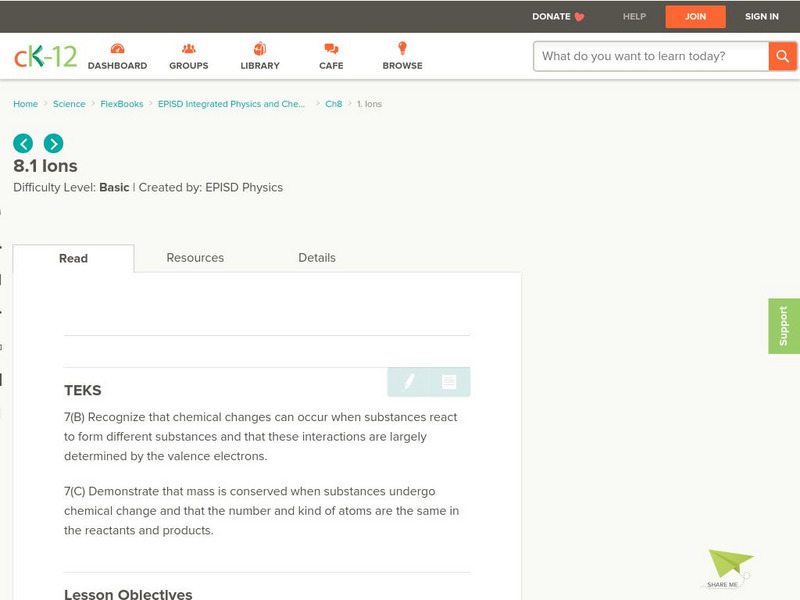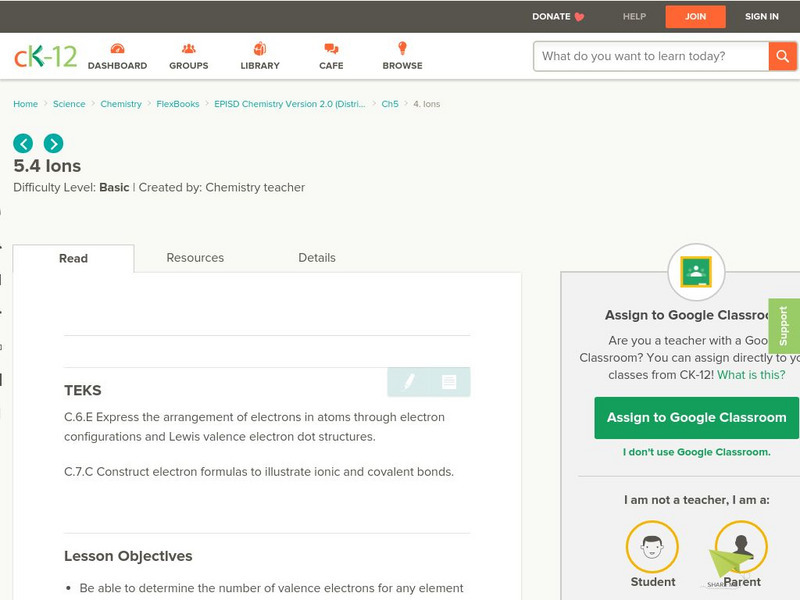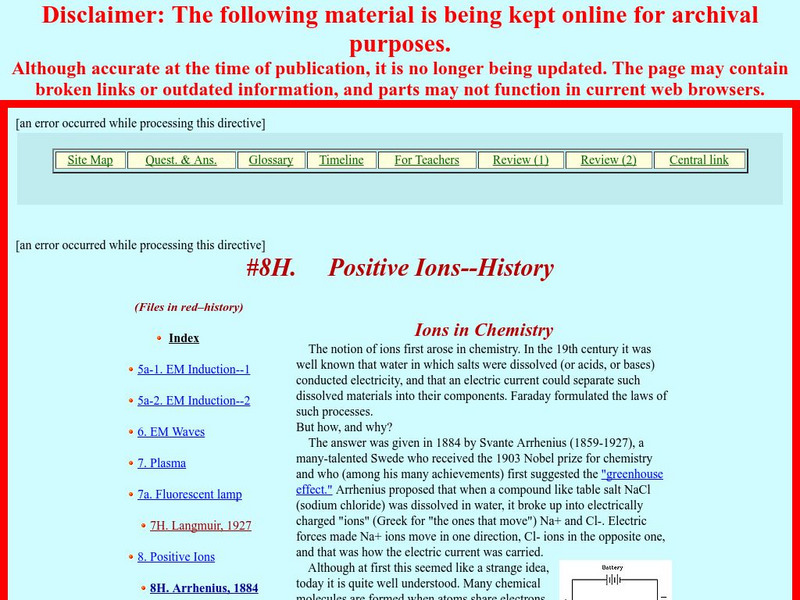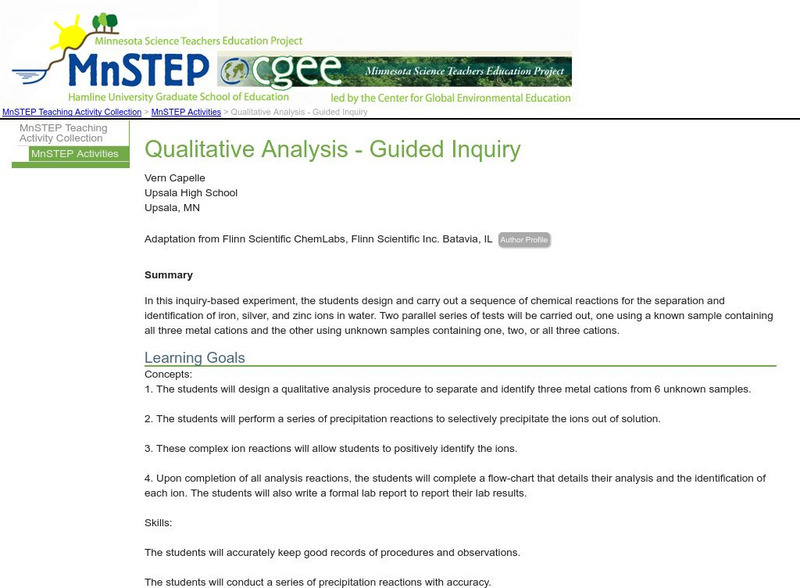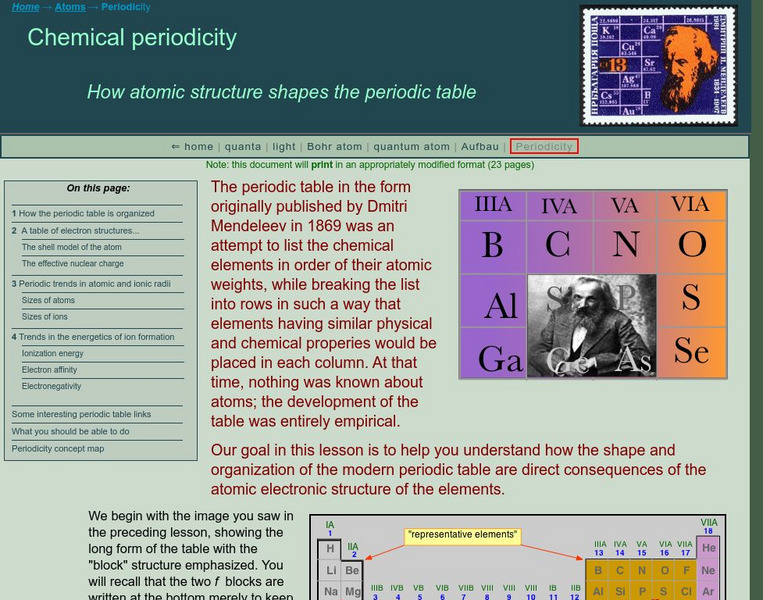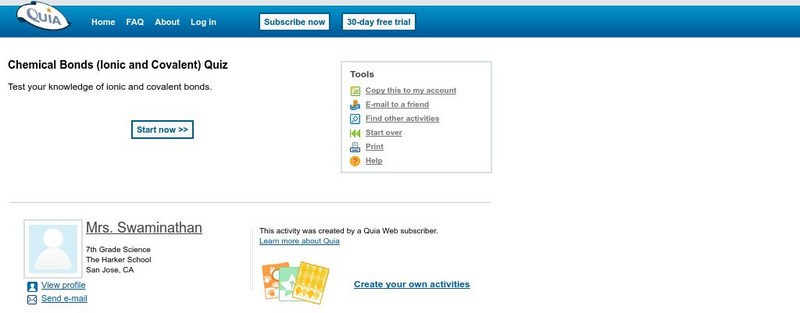American Chemical Society
American Chemical Society: Hompage
ChemCenter, available from the American Chemical Society, provides chemistry news, reference sources and other public services.
Chem4kids
Chem4 Kids: Ions
Here at Chem4Kids you can learn all about ions. Content explores what an ion is, its various characteristics, electrovalence, and more.
Chem4kids
Chem4 Kids: Atoms
This site provides a detailed overview of atoms. Content explores an atom's structure, as well as what ions are, how atoms bond, what compounds are (including how to name compounds), and what isotopes are.
University of California
Organic Chemistry Page: A Brief Tutorial on Drawing Lewis Dot Structures
An excellent lesson on writing Lewis structures. Examples shown include ammonium ion, carbon dioxide and the carbonate ion.
Frostburg State University
General Chemistry Online: Atoms & Ions
This site from the General Chemistry Online of the Frostburg State University provides a review of the history of atomic theory, the discovery of the electron, and the discovery of the nucleus. Details on weighing atoms, ion charges,...
Chiral Publishing
Chiral Publishing: An Introduction to Chemistry: Identification of Strong and Weak Bases
Read and learn about strong and weak Arrhenius bases. View the written formula and discover what certain solutions may be dissolved and which molecules can be transferred.
CK-12 Foundation
Ck 12: Ions
[Free Registration/Login may be required to access all resource tools.] In this lesson, students learn ways to predict what type of ion a given element is likely to form.
CK-12 Foundation
Ck 12: Ions
[Free Registration/Login may be required to access all resource tools.] In the following online tutorial students will be able to determine the number of valence electrons for any element and draw an electron dot diagram for any atom....
Frostburg State University
Frostburg State University Chemistry Online: Polyatomic Ions
A good reference page for anyone studying polyatomic ions. Tables included on this page organize polyatomic ions by family and by charge. Information on naming compounds with polyatomic ions is also provided. There is a link to an online...
Florida State University
Florida State University: Lightning, a Natural Capacitor
Text and animated graphic show how lightning is an example of a natural capacitor.
NASA
Nasa: Positive Ions History
As the title suggests, this page from NASA goes over the history of man's study of positive ions. How did we come to know what we now know about cations?
University of Southern California
Atomic Bonds
This slide show on atomic bonds contains several slides on electron affinity. Other topics include covalent, Sigma and Pi bonds, and atomic bonding in solids.
Science Education Resource Center at Carleton College
Serc: Qualitative Analysis: Guided Inquiry
In this experiment, young scholars will design and carry out a sequence of chemical reactions for the separation and identification of three metal cations from six unknown samples.
Science Education Resource Center at Carleton College
Serc: Investigating Ions: Copper Topping
Young scholars will utilize a few household items to create a thin copper coating on items without using electricity.
Science Education Resource Center at Carleton College
Serc: "Chemory" the Game
In this classroom activity students will utilize the familiar matching game concept they played as youth to match elements and their symbols, ionic ions into formulas, and learn common ion charges of the most well known elements.
Simon Fraser University
Chem1 Virtual Textbook: Periodic Trends in Ion Formation
Acting as a subtopic of the General Chemistry Virtual Textbook's section on Atoms and the Periodic Table, this site discusses electron affinity and ionization energy in relation to ion formation. Charts and graphs are included as well.
Ohio State University
Ohio State University: Electron Affinity
This page describes electron affinity and the periodic trends of the elements according to their positions on the periodic table.
Simon Fraser University
Chem1 Virtual Textbook: Chemical Equations and Calculations
As part of the "Basic Atomics" section of the Virtual Textbook, chemical equations are examined here. Equations involving ions and limiting-reactant problems are also discussed.
Simon Fraser University
Chem1 Virtual Textbook: Naming the Ions
As part of the "Basic Atomics" section of the Virtual Textbook, this site examines the naming system of ions, with specific attention given to cations and anions. Oxyanions and multivalent cations are also discussed.
Crescent Public Schools
The Internet Science Room: Net Ionic Equations
Through example problems and explanation, students learn that net ionic equations attempt to show only the particles involved in a chemical reaction.
Quia
Quia: Capitalization of Proper Nouns and Adjectives
A nice online quiz on polyatomic ions. The "joke" answers are a bit distracting, but the page is useful.
Quia
Quia: Common Type Ii Cations
This page links to a number of Java games that are designed to make learning the names, symbols and charges of the various cations fun.
Quia
Quia: Common Monotomic Cations and Anions
This page links to a number of fun Java games, designed to help students learn the names and symbols of various ions. Games include matching, concentration and word search.
Quia
Quia: Chemical Bonds (Ionic and Covalent) Quiz
This is 21-question multiple choice quiz over chemical bonds was written for a 7th-grade science class.



